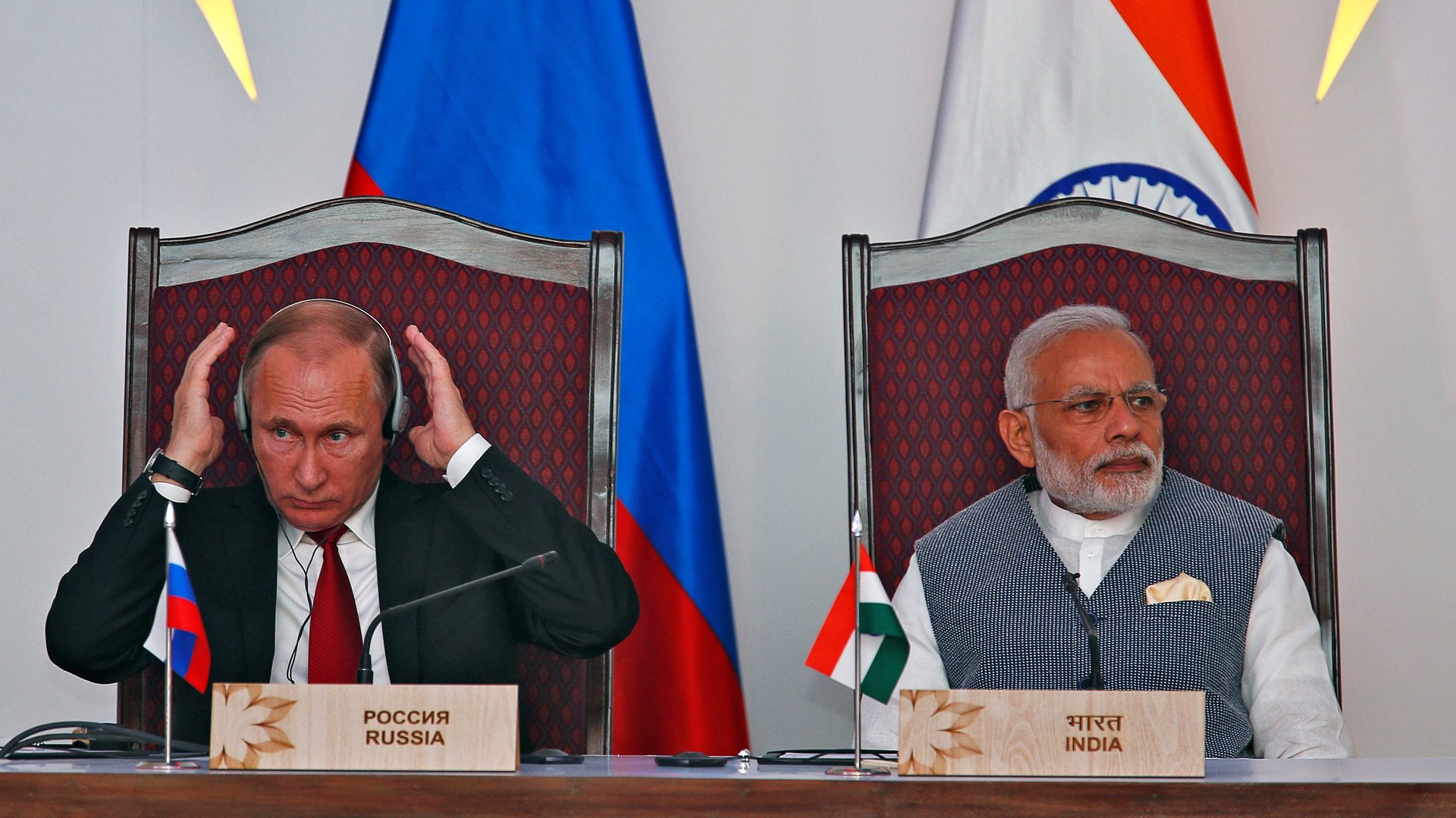India is suddenly the center of global wartime diplomacy
Russian foreign minister Sergei Lavrov landed in New Delhi today (Mar. 31)—the same day as UK foreign secretary Liz Truss. A senior US official, deputy national security advisor for international economics Daleep Singh, arrived a day earlier.


Russian foreign minister Sergei Lavrov landed in New Delhi today (Mar. 31)—the same day as UK foreign secretary Liz Truss. A senior US official, deputy national security advisor for international economics Daleep Singh, arrived a day earlier.
This cocktail of diplomats is rather unbalanced, with each having completely different items on their agenda.
While it’s unclear who or what is on Lavrov’s schedule, his aim is likely to establish a payments system for defense and oil transactions and ensure the relationship between India and Russia is not affected by Western sanctions. Meanwhile, Singh and Truss are trying to persuade India to take a more active—and pro-Ukraine—role in the war.
India pursues a policy of non-alignment, but it is now pulled in several different directions by other global powers.
Why India won’t openly criticize Russia
India has historically strong military and economic ties with Russia, and among major economies, it is noticeably reticent to join the condemnation and sanctions against Vladimir Putin’s government.
India has called for a ceasefire and diplomatic solution, and recently even refrained from backing Russia’s resolution deflecting blame for the humanitarian crisis it has created in Ukraine.
However, it has repeatedly abstained on votes when it counts, for draft resolutions condemning Russia’s invasion or for calls for urgent debate to investigate the alleged human rights violations in Ukraine. India also wanted to keep the diplomatic door open to safely evacuate Indian students from Ukraine. But weeks after the last group was rescued, its position hasn’t changed.
India is the world’s largest buyer of Russian weapons, as much as 50-80% of its military equipment. Its silence means it is also able to buy Russian oil and gas at discounted rates.
To make sure business goes on as usual, India is discussing an alternative rupee-ruble platform after several Russian banks were cut off from SWIFT. Russian central bank officials may visit India next week to discuss the matter.
For now, being on the “right side of history“ looks less appealing than not being on the wrong side of Russia.